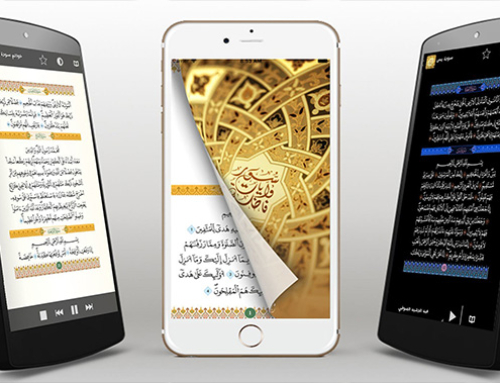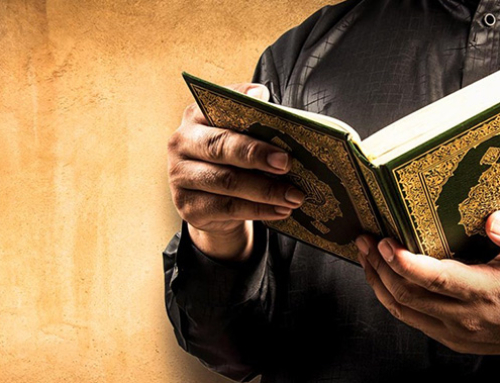Abdessalam Yassine
July 6, 2023
Excerpt from the book: “Reflections of Islamic Law and History” [not published yet]
Translated from the Arabic by the Editorial Board
It is indeed disturbing that some Traditionalists claim that the Quran can only be approached from a safe distance, that is, through uncritically glossing the interpretation of the scholarly corpus: “To correctly interpret the Quran is still to be wrong, and such wrongness is disbelief.” Such a statement suggests a fatalism about being able to comprehend the straightforward commands of the Lord.
Nowadays we find the exact opposite: the impudence of those who dare to interpret the Book of God according to their own base desires, approaching it through the lens of any number of materialist, dialectic, or structuralist lenses. If the ultra-Traditionalists have abandoned the Scripture out of a misplaced reverence, then the modernist heretics have stripped the text of its sacrosanctity and made it just one more book in the continuum of the intellectual evolution of Arab thought.
We uphold the final authority of the Qur›ān both as a matter of faith and of intellectual methodology: the Scripture must act as the ultimate point of reference to which we defer. We must then articulate the proper manner of honoring the text and then of duly deriving rulings from it. This is so that we may avoid falling into the pitfalls of those who take the Lord’s signs lightly: “They barter away God’s signs for a paltry price and hinder others from His path. Evil indeed is what they do.” [9:9]
The Prophet’s Companions (God be pleased with them), as full Arabs inherently gifted in the Arabic language, were able to fully appreciate metaphors and other rhetorical usages, and hence experienced the Qur›ān in its full freshness. They received its verses with reverence, as they readily recognized that it was nothing less than Divine speech. When it descended into their hearts, it instilled tranquility and an eager readiness to obey God’s commands and prohibitions. For them, the Qur›ān offered much-needed solutions to pressing issues of how to manage their new community. The various chapters of Scripture relayed to them God’s custom in bringing about the rise and fall of past nations. The Companions were well-versed in the underlying themes of the Scripture, and they refrained from pedantically sparsing the meaning of individual phrases that did not touch upon fundamental issues of creed or the permitted and the prohibited. Thus, when ‹Umar (or, in another narration, Abū Bakr) was asked about the meaning of an unclear word (abb) in [80:31], he refused to speculate: “We have not been commanded to delve into such matters.”
May God be pleased with the Prophet’s Companions! They were deeply conversant with the specific occasions that prompted the revelation of the various chapters as well as with their overarching message. So too did they possess intimate familiarity with Arab culture. They were quite conscious that the world was not split into just the permissible and the forbidden, but admitted several other degrees in-between. But despite all this, they did not rely solely on their own knowledge to translate Islam, but referred to the Messenger (God bless him and grant him peace).
As such, they evinced an extreme reluctance to interpret God’s words based on their unsupported opinion. It has been narrated that Abū Bakr aṣ-Ṣiddīq (God be pleased with him) was once asked about the meaning of an esoteric word in the Scripture; his answer defines the sanctity in which every believer should hold God’s Word: “What sky would shade me, what earth would contain me, if I were to pronounce something about God’s Book that I don’t know?”
The correct attitude toward approaching the Scripture lies between the two extremes of the ignorant who distance themselves from the Qur›ān and the impudent who nullify its sacredness. The best course for this generation of Islamic activists is to adhere closely to the Qur›ānic word and to uphold their commitment to the ideals of the Book which have not been subject to any abrogation or change. Let the specialists analyze those passages that lend themselves to multiple interpretations – until the Almighty allows the appointment of a political authority true to the method of prophethood who can organize ijtihād under his direction. In a ḥadīth related by Bukhārī, Muslim, and others, the Messenger (God bless him and grant him peace) said that “When an authority makes a judgement, having exerted their utmost effort, and hits on the right verdict, they earn double the reward. And if they pronounce a judgment, having exerted their utmost effort, but are mistaken, they still earn a single reward.” Nota bene that this dispensation for ijtihād is not limited to those jurists specialized in the secondary matters of fiqh.
Exercising the Prophetic Method (al-minhāj an-nabawī) and ijtihād in accordance with the principles of shūrā, justice, and iḥsān is a requirement according to the Qur›ān. We do not need to rework the legal proofs of the earlier scholars to reaffirm this requirement if God Himself has already laid it out. God-willing, we shall not let ourselves be dissuaded from pursuing them by the twisted arguments of those who try to cover the light of the sun with their hand. We will simply listen to the Holy Scripture as it unambiguously addresses the Noble Messenger (God bless him and grant him peace): “Judge, then, between them in accordance with what God has revealed and do not follow their vain desires, forsaking the truth that has come to you. To every one of you We have given a law (shir‹a) and a method (minhāj).” [5:48]
As Ibn ‹Abbās (God be pleased with him and his father) once clarified: “The minhāj refers to the teachings of the Sunna.” The teachings of the Sunna, with respect to our present discussion, represent the practical application of the Qur›ān: governance on the basis of shūrā, justice, and iḥsān. To this were the Prophet (God bless him and grant him peace) and his Companions commanded, and to this are we also commanded. The up-and-coming generations of believers have been favored with the promise of the second Caliphate that governs according to the Prophetic Method.
These blind followers who sit idly at the feet of long-passed scholars are incapable of devoting themselves wholly to the sovereignty of the Qur›ān. They remain oblivious to the fact that their scholar and his school of thought are rendered relative by a specific historical context. He was limited by the legacy of governance in his era and the various political, social, and sectarian debates shaping his ijtihād. And so the blind followers cannot rise above this splendid Tradition to sit in front of the pulpit of the Prophet (God bless him and grant him peace) to receive fresh, unadulterated Divine revolution.
Furthermore, some of these blind imitators – whether through simple-mindedness, good intention, or plain ignorance – discard the great diversity of methodology within the Tradition to focus on a literal adherence to the writings of a single scholar.
Those of our predecessors who exercised ijtihād were addressing issues that may lack relevance for our own time. They wrote their opinions in response to contingent problems. They employed the tools available to them to achieve goals which they deemed feasible. Hence, their conclusions should be contextualized in their appropriate time and place. But the blind followers insist on raising them up as an authority absolute, which of course only the Qur›ān and the Sunna may claim. How strange it is that they are veiled from the Speech of the Almighty by the conjectures of mere mortals! Although perhaps some of them are so illiterate that they simply do not know how to even discern the true “people of remembrance” (ahl adh-dhikr), whom the Lord has commanded the less-knowledgeable to defer to. Regardless, blind imitation dooms us to remain stuck on the path of intellectual stagnation, chauvinism, and narrow-mindedness – may God save us from this!
The opposite path, by contrast, leads to moral decay and hedonistic degeneracy: this is the path of those who regard the scholars with disdain and have no need for the latter’s firm foundations in Qur›ānic exegesis, ḥadīth criticism, legal theory, and theology. Such people outwardly call to the Qur›ān while offering the umma nothing but a superficial reverence for it. They pretend to uphold the Sunna, all the while attacking it with the hegemonic values of their time instead of using the Sunna to challenge their own false universals. They tout the principle of consensus (ijmā‹), but one that is more akin to a public referendum than the consensus of qualified scholarship. They endorse the use of analogical reasoning (qiyās), which for them amounts to nothing more than their uncritical opinions floating in the stream of their base desires.
Meanwhile, those tyrants who deny the Sunna outright, with the claim that the Qur›ān alone embodies the truth, or those West-intoxicated agents of disbelief and godlessness who constitute the “Islamic Left” deserve no more than the briefest of mentions. Anyone who bears witness that there is no deity worthy of being worshipped other than God and that Muḥammad is His Messenger should be able to easily realize that these people are among those who spread falsehood and corruption on earth.
Another group of the same ilk are those who falsely claim to “serve” the Qur›ān by imputing to it a modern interpretation. To that end, they resituate the Scripture as a narrative subject to the criticism of their “humanities.”
The only person who is truly able to raise the Qur›ān to the arbiter of their affairs, to elevate their understanding to the point of receiving wisdom directly from its pages is the one for whom the Book is the spring of their heart. As long as this is the case, they should not hesitate to take advantage of the other sciences laid out by the great scholars. For every branch of knowledge articulated by them was in the service of the Qur›ān, springing forth from it and coming back to the source.
Those who dare to interpret the Scripture without knowledge are like butterflies heading toward the fire. They are infatuated with modern philosophy, secularism, and the hegemonic godless culture. They have absorbed the jāhilīyya of both East and West into their hearts. Their intoxication with contemporary civilization knows no limits. They cannot even admit to modernity’s drawbacks, which even Westerners readily do.
Hence, they speak of the Qur›ān as a “civilizational treatise,” “a history textbook,” or “a revolutionary manifesto.” The basis in belief in the Divine and the Last Day has been cut off in their feeble minds, so that the Qur›ān is to them a collection of mythology rather than the Word of the Lord of all the worlds.
What stops them from adopting the Qur›ān as the arbiter of their way of life is nothing less than disbelief. So too does blind imitation cut people off from the Scripture. It is irrelevant how erudite their own imam is; as long as such people remain blinkered by their uncritical following, they cannot perceive their own situation in the light of the Qur›ān, nor can they appreciate the unfolding of the Divine custom in their own present, the fact that He fosters a balance of power among different opposing groups, the obligation of jihād, the imperative of the believers to unite, the duty of promoting good and forbidding evil, or the virtue of shūrā and comprehensive justice in action. When a regular Muslim tries to read the scholarly tomes by themself, they project onto the scholars’ legal pronouncements, abstract philosophizing, and dialectics their own biases far removed from the actual intent of these past authors, whose writings commanded relevance and authority in their own time.
You find such a person regurgitating phrases that have lost their meaning, losing themselves in circular arguments. They are intoxicated with pride that they have found passages which they can use as a weapon in disagreements.
For those of a feeble, immature mentality, blind following conjures up images of a glorious past – but when they try to recreate that glory in the contemporary reality, their solutions prove to be contradictory and ill-advised, producing nothing but dissension among the believers.
Every mentality that is veiled from the Qur›ān qua ultimate authority and the perfect model of the Sunna in its entirety is deficient in understanding Islam, regardless of whether this springs from disbelief, hypocrisy, or blind following. Islam means submission of one’s entire being to God Almighty on the basis of His glorious Word brought to us by His noble Messenger (God bless him and grant him peace): if we do not fully dedicate ourselves to living the Qur›ān, we cannot call ourselves true Muslims. At the same time, to seek to understand the Scripture through a well-established sunna or through the interpretation of past sages does not entail turning away from the Qur›ān – as long as the commentator and commentary are not distracting from God, Almighty.
We will find in the lived experience and ijtihād of our earlier scholars that which is bound to enrich our own efforts, provided that we place above them the Qur›ān as the final arbiter. We examine them in the light of the Qur›ān, the genesis and evolution of their thinking and methodology, how they were influenced by their environment, how they in turn influenced it, when they pushed forward and when they held back, and how their opinions, correct and incorrect, played out.
With the Qur›ān as our standard, we question our history: to what extent was the justice demanded by the Scripture applied? What happened to shūrā? How was iḥsān manifested? How were these principles practiced by this school of thought, that spiritual group, or those authoritarian rulers?









